If you’ve stumbled across reishi and are now interested in supplementing it into your diet, you’re likely aware of its potential benefits.
But how much reishi should you take?
Reishi (Ganoderma lucidum) is one of the most well-researched medicinal mushrooms because of it its possible benefits for immunity, inflammation, stress-relief (adaptogen), sleep aid, as well as its use in other medical applications. Common uses of reishi range from potential anti-cancer properties to the ability to balance and lower blood pressure, making its potential for diabetes something that is yielding more and more attention.
We hope that more research continues to be done in regards to various medical conditions that it can help alleviate.
And like any educated consumer, you want to know how much reishi you should be taking.
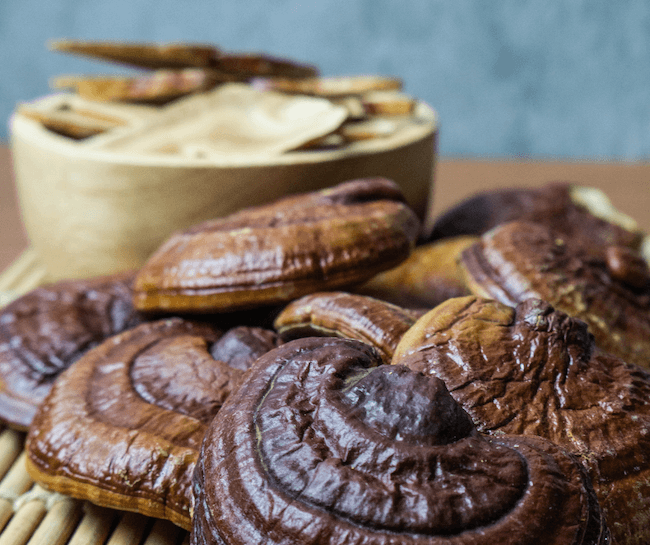
Let’s dive in:
Reishi dosage considerations:
Keep in mind that depending on your age, weight, gender, and the medical condition you’re addressing, dosage may change. You should always contact a licensed physician/doctor regarding the addition of new supplements, especially if you’re currently taking other medications or are pregnant or breastfeeding.
But, as a general guide, here are the typical reishi dosages by product type:
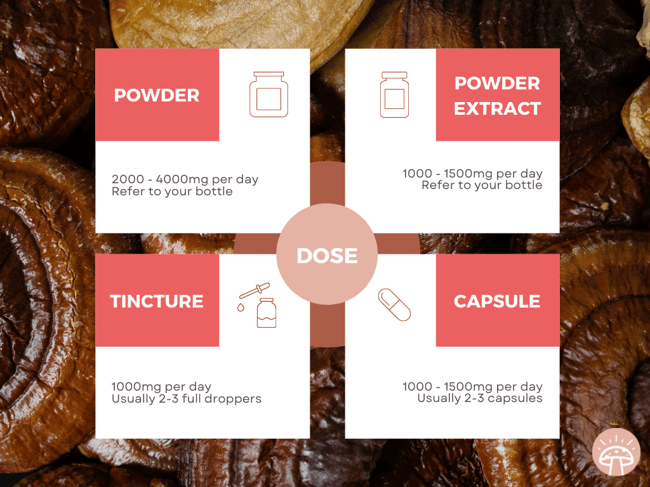
Reishi dosage for extract powder
1000-1500mg per day
This type of powder has gone through a process to extract (often a hot water and alcohol extraction) the most beneficial compounds of reishi (beta- and alpha-glucans, as well as triterpenoids). Extracts (in this case powder) are more potent than consuming reishi mushroom by itself or simply dried up and dehydrated powder.
Reishi tea is a popular way to take this powerful mushroom. We put together a guide to reishi tea here.
Reishi dosage for mushroom powder (non-extract)
2000-4000mg per day
You’ll see this offered by a few companies out there. Remember that powdered mushroom is not an extract. Instead, it’s just dehydrated/dried reishi mushrooms that are ground into a powder. It does not have the same functional benefits as an extract will.
Powdered reishi is similar to eating raw reishi mushrooms. While you’ll likely receive some nutritional components, like b vitamins and some protein, you won’t get the same benefit as an extract in terms of beta-glucans (and other polysaccharides) as well as the triterpenoids (both of which the main research studies are conducted on) because they are only soluble in hot water and alcohol. Our bodies cannot break down the tough cell walls of mushrooms, so unless an extraction is done, we will not be able to absorb/get the benefit from its “medicinal” properties.
We put together a guide on mushroom extraction here to make understanding this concept easy.
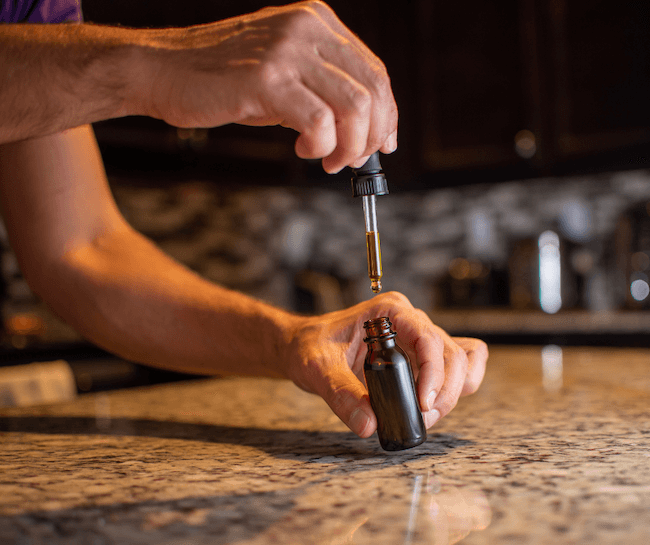
Reishi dosage for tinctures
1000mg per day
Tinctures, otherwise known as liquid extracts, go through a process similar to those of powdered extracts.
Typically, a hot water extraction is done, because polysaccharides are only water-soluble, and then an alcohol extraction is done because triterpenoids are only alcohol soluble.
However, you may see some products that are only created with a hot water extraction.
The ideal method is double extraction. Liquid extracts are in the most bioavailable and potent form, requiring a smaller dose or around 1000mg per day (typically 1ML in a dropper). In fact, powdered extracts are just made by then drying the liquid extracts, which can lose a small amount of the beneficial properties.
Reishi dosage for capsules
1000-1500mg per day
Capsules are typically going to be powdered extract, but put into easily-swallowed capsules. You’ll want to check your supplement facts of the product you ordered, but typically, each capsule contains about 500mg of powdered reishi extract. You’ll likely be between 2-3 capsules per day, assuming that mg amount holds true.
When is the best time to take reishi?
There is no definitive scientific answer on what is the best time to take reishi mushrooms. We’ll outline what the science does show us here. Keep in mind that if you’re looking for functional benefits from reishi, it’s likely more important that you take it at the proper doses for the proper amount of time more than the specific time of day.
Let’s look at what the science says:
Studies were conducted on whether or not reishi (Ganoderma lucidum), taken on an empty stomach, would be better absorbed than if taken with food.
The study stated, “food significantly decreased C max and delayed T max, but did not affect the extent (AUC0–8 and AUC0–∞) of ganoderic acid A absorption.”
But it did state, “food intake markedly impeded both rate and extent of ganoderic acid F absorption.”
Keep in mind, these acids are triterpenes present in reishi after an extraction process has been done.
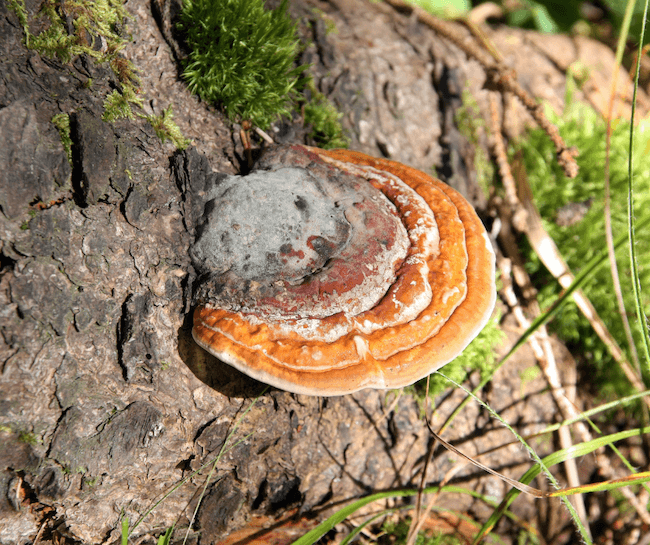
It did not test all properties of reishi, including beta-glucans and other polysaccharides.
So, when it comes to the best time to take reishi, we don’t have a definitive answer, as more studies need to be conducted to draw a conclusion.
It does appear that one triterpenoid (at least ganoderic acid F) was better absorbed on an empty stomach.
However, the best time to take reishi is more likely based on the health condition you’re taking it for.
For example, if taken for its potential immune-boosting properties, there isn’t a “right” or “wrong” time. Many enjoy taking the powdered extract with a drink of their choosing, whether it is coffee, tea, milk, or in a smoothie.
Tinctures, or liquid extracts, could be taken any time of day as well.
If you are taking reishi for its purported adaptogenic benefits and/or as a sleep aid, which studies have been done for, like this one on mice, then it’s probably best to take it in the evening before bedtime.
The problem with choosing when it’s best to take reishi lies in its ability to provide a substantial group of potential benefits.
You’re looking to supplement with reishi for your own, personal needs. Let that determine the best time to take it, as there is no concrete, scientific evidence that there is an optimal time.
What kind of reishi is used in clinical trials? And how much?
Reishi is one of the most studied medicinal mushrooms, but human studies have been limited to this point. Most are animal (mice) studies or in-vitro experiments.
The most heavily-studied reishi (Ganoderma Lucidum or Linghzi) properties are the polysaccharides (beta-glucans) and triterpenoids (acids).
Nearly all studies reference the extract, rather than just eating the mushroom itself.
One study, containing 134 patients, gave 1800mg of Ganopoly (a reishi/Ganoderma lucidum polysaccharide extract) 3 times a day (5400mg total), over the course of 12 weeks.
The same parameters were used on another study of 68 patients over the course of 8 weeks.
A smaller study of (Lingzhi) reishi, delivered by capsule over 4 weeks, had a group of adults supplementing 1440mg per day.
A 24-week study supplemented 32 patients with active Rheumatoid Arthritis, with 4 grams (4000mg’s) Ganoderma Lucidum (reishi) and an accompanying herb, San Miao San.
The study continued to discuss that,
“The dosage of G lucidum [Reishi] at 4 gm daily was recommended by practitioners of TCM (Traditional Chinese Medicine), although the effective dose is not really known. Dosages of 0.5–1 gm daily have been recommended for health maintenance, 2–5 gm for chronic health conditions, and up to 15 gm daily for serious illness. The recommended G lucidum dosage in the Pharmacopoeia of the People's Republic of China is 6–12 gm (23). We chose a lower dose in the combination treatment based on the suggestion of the local TCM practitioner and in consideration of safety aspects because the patients were taking other medications and it is not known if interactions might occur. It is possible that higher doses may have a more beneficial effect. The toxic dose of G lucidum is also not clear but the median lethal dosage has been estimated to be between 10 and 21 gm/kg, and very high dosages (up to 38 gm/kg) have been tested in animal experiments (24, 25), indicating the extracts are very safe.”
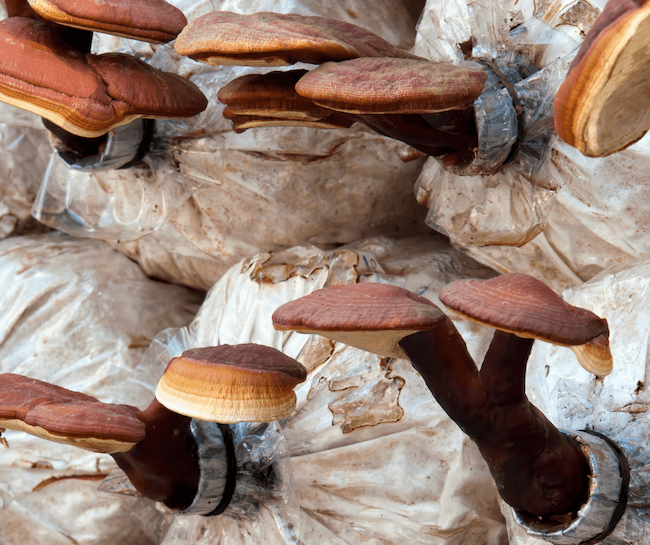
Tips for incorporating reishi into your daily routine
For supplementing with reishi, you’ll likely see the recommended dosing of 1000-1500mg (1-1.5g) of extract daily, either in powdered or liquid form (tinctures).
When considering reishi for your daily routine, follow these tips!
- Consult your doctor/physician. If you’re taking other medications, your physician will be able to tell you if there are any that may interact with taking a reishi extract.
- Start with a small dose - In the current list of human trials, few side effects were noted. It is generally regarded as safe, granted there are some reported side effects with digestive (GI) issues as well as those that may develop a rash, dry throat or itchiness, as a reaction.
- Take as part of your daily routine - Reishi, although revered for its many purported benefits is not going to be useful if taken once and then forgotten about. To get the most out of supplementing reishi (or any supplement for that matter) it’s best to take for at least 30 days to evaluate your own personal benefits.
- Take it when you want - Reishi has many potential, immune-boosting properties. For this reason, supplementing at any time of day is best. There is one study that recommends taking it on an empty stomach, but there isn’t enough research on this yet to determine if this should be the case. It all depends on the “condition” you’re aiming for. EX: reishi has the potential to act as a sleep aid and an adaptogen (stress/anxiety relief properties), so taking it an hour before bed may be your best choice.
- Listen to your body - Because dosing hasn’t been firmly established yet, let your body be your guide. You may need to increase or decrease dosage based on your desired effect or condition you’re treating. People react differently. (EX: caffeine. Some people take one sip of coffee and are jittery and extremely alert. Others can drink a cup of coffee and go to bed.)
- Look for trusted products - There are a lot of companies out there promoting their reishi products. You need to know what to look for!
We've also compiled a list of possible side effects from taking reishi which you can view here.
Reishi shows a lot of promise in the world of health. From its potential to boost the immune system to the ongoing research on its potential to help multiple medical conditions, including but not limited to cancer, diabetes, and arthritis.
We will continue to update on any new trials and research that are conducted, which is expected to increase generously as medicinal mushrooms continue to be adopted by the Western world.
If you're ready to keep learning, check out our educational reishi hub here.

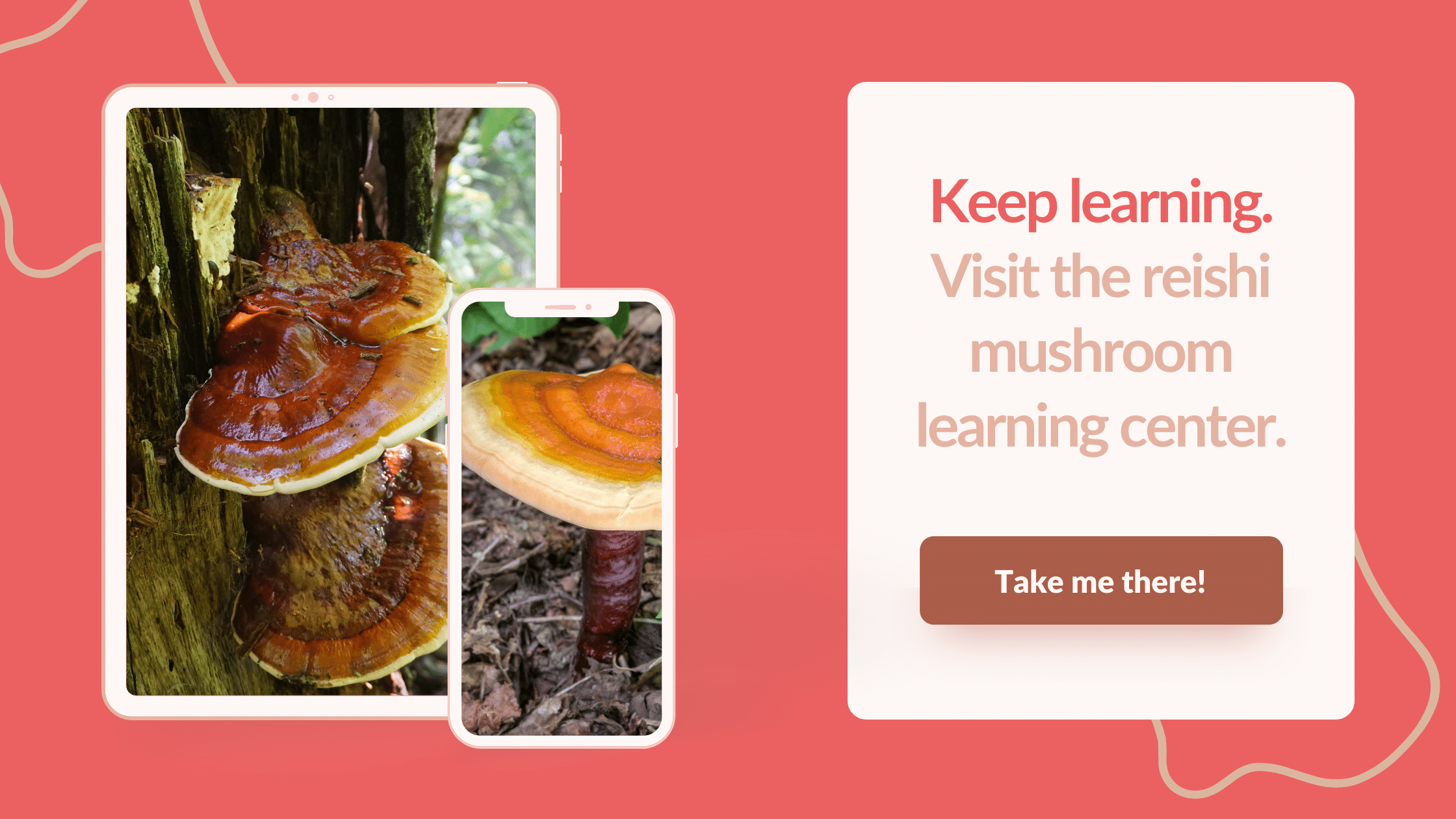
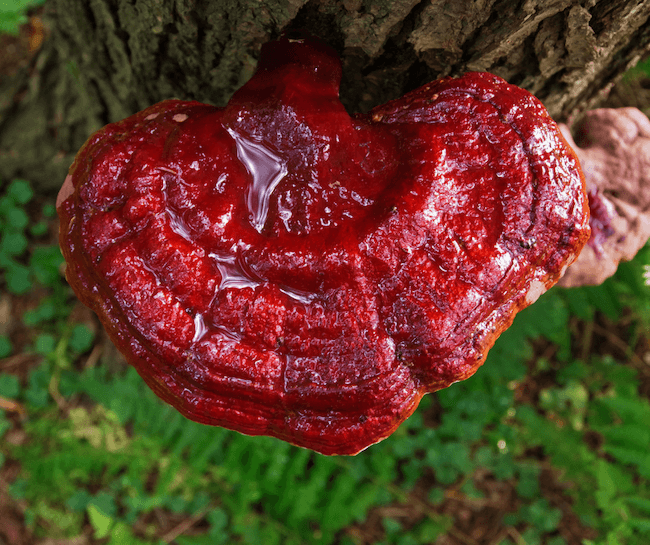
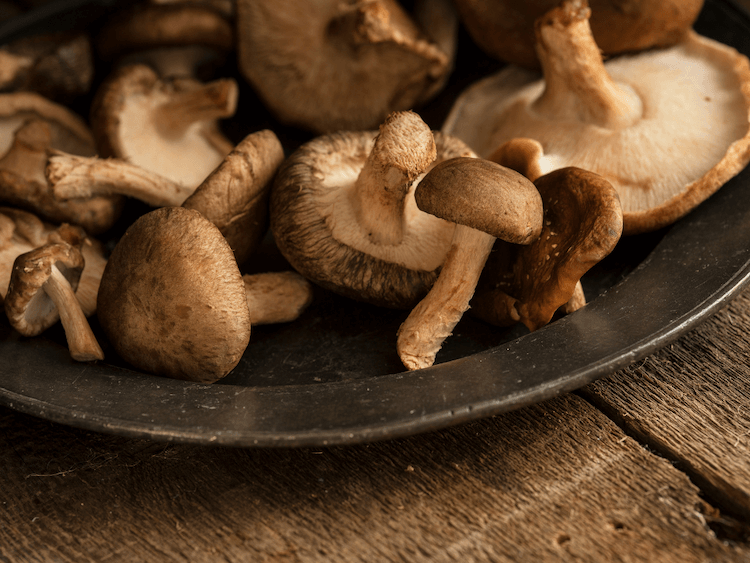


.png)
